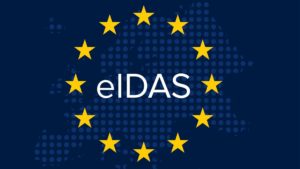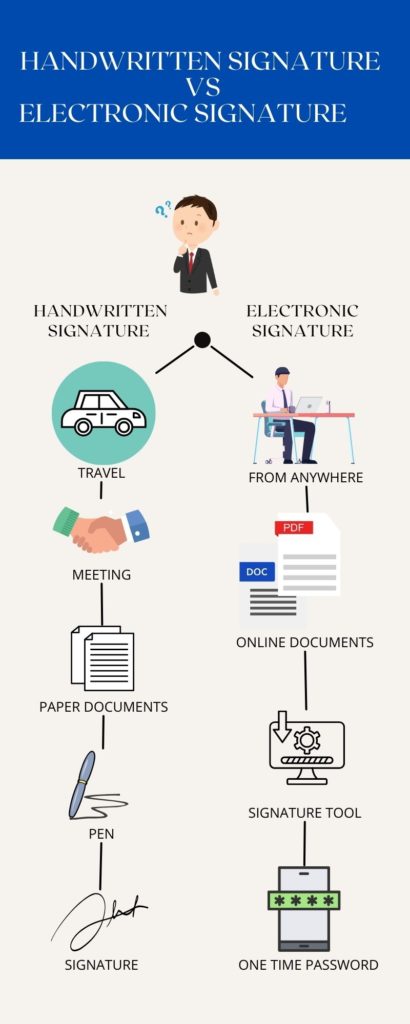Mastering the complexities of electronic signatures regulations is paramount for businesses navigating the ever-evolving digital landscape. Let's embark on a journey through the intricate world of eSignatures regulations, shedding light on pivotal standards, compliance requirements, and recent updates that significantly impact businesses, especially those operating in a cross-border environment.
European Union: eIDAS Regulation and diversity of additions
At the heart of electronic signatures regulation in the European Union lies the eIDAS Regulation (electronic IDentification, Authentication, and trust Services), enforced in 2016 to establish a unified legal framework across EU Member States.

One of the fundamental aspects of eIDAS are its provisions pertaining to Qualified Electronic Signatures (QES), ensuring that QES hold the same legal effect as traditional handwritten signatures, thus fostering trust and acceptance of digital transactions. While eIDAS sets the minimal interoperable requirements, individual Member States can implement additions to accommodate their unique legal structures and requirements.
On top of the EU-wide eIDAS regulation, individual Member States have implemented supplementary national laws to address specific nuances of electronic signatures within their jurisdictions. For instance, countries such as Belgium and Luxembourg have enacted legislation to complement the regulatory framework established by eIDAS.
To illustrate the additions to eIDAS at the national level, consider the case of Belgium. The law of July 21, 2016, which aligns with and complements the Regulation (EU) No 910/2014, incorporates a provision where a Qualified Electronic Seal, when used for legal acts conducted solely by or between individuals or entities based in Belgium, is treated as equivalent to the handwritten signature of the individual who represents the legal entity that created the seal. Thus, this national legislation recognizes qualified electronic seals with the same legal effect as traditional signatures within the country. These national laws complement eIDAS by providing regulations tailored to each country's legal system and requirements. By doing so, they contribute to a more comprehensive environment for electronic signatures, while also increasing the diversity in digital transactions across the European Union.
Furthermore, within each country, different industries may have specific regulations that govern the use of electronic signatures. For instance, sectors such as finance and healthcare often have sector-specific compliance requirements that businesses must follow when implementing eSignatures. This underscores the importance of understanding and adhering to industry-specific regulations to ensure compliance and mitigate potential risks.
Finally, eIDAS undergoes periodic reviews and has recently been amended by the new EUDIF (European Digital Identity Framework) regulation to adapt to evolving technological landscapes and enhance the effectiveness of electronic signatures, necessitating businesses to stay informed about these updates to ensure compliance.
Beyond Europe
The adoption and regulation of electronic signatures extends far beyond Europe's borders, with many countries worldwide developing their legal frameworks to facilitate digital transactions. Thus, international businesses must navigate a diverse range of regulatory landscapes to ensure compliance and facilitate seamless digital interactions on a global scale.
Understanding and adapting to these regulatory environments are crucial for harnessing the full benefits of electronic signatures worldwide. Specific examples, such as Ukraine and the United Arab Emirates, demonstrate the global momentum towards embracing digital transformation and modernizing legal frameworks to accommodate electronic signatures.
Elevating your business with EVA
Navigating the intricate landscape of electronic signature regulations demands more than just a surface-level understanding of the laws and standards in place. Businesses must also equip themselves with the right tools and best practices to ensure compliance and maximize the benefits of digital transactions. A proactive approach involves adopting an electronic signature platform that goes beyond mere signature verification.
This platform should offer additional features such as digital identity management, data privacy, and document traceability. By investing in such solutions, businesses can reinforce the security of their transactions and enhance the efficiency of their document processes.

At Nowina, we understand the importance of staying ahead of the curve in the digital age. That's why we've developed EVA, our electronic signature platform. EVA is more than just a signature tool: it's a comprehensive solution designed to streamline document workflows, protect sensitive information, and ensure compliance with regulatory standards.
In addition, EVA is continuously updated to meet evolving regulatory requirements and industry standards, ensuring that the users always have access to the latest tools and technologies for secure and compliant digital transactions.
Don’t hesitate to contact us at info@nowina.lu to learn more and embark on a seamless digital transformation journey.
In an era dominated by digitalisation, the electronic signature has emerged as a crucial element. The COVID-19 pandemic accelerated its significance, putting it in the spotlight as an essential tool when physical meetings were restricted.
The post-pandemic era has solidified the significance of electronic signatures, and their benefits such as, time-savings, cost efficiency and positive environmental impacts, are widely recognized. Today, these signatures are a crucial asset for both individuals and businesses.
Nevertheless, electronic signatures are still a challenging topic for many people, leaving them with several questions unanswered: What do we mean by electronic signatures? Who are they intended for? What advantages do they offer? How do they work?
What do electronic signatures mean?

Electronic signatures are a digital form of signature that use encryption systems to ensure the reliability, security, and legality of a document, providing a similar value to that of a handwritten signature.
They can be used for various applications such as contracts, business agreements, or attestations. Thanks to the integral information security features they incorporate, electronic signatures ensure that documents exchanged in online operations have not been altered and that the identity of the signer has been verified. Thus, the most notable difference with the handwritten signature is that, unlike the latter, no physical exchange is required.
Electronic signatures, yes... but for whom?
Electronic signatures serve as a practical and efficient tool, streamlining document signing processes. Their utility extends across a broad spectrum of users’ needs, from individuals to professionals needs.
Nowadays, with the rise of digital processes, electronic signatures align with the overall trend of digitalisation. This enables professionals and individuals to adapt to the swift transition to the digital era, allowing them to reap the benefits of electronic signatures over cumbersome physical counterparts.
What are the advantages?
Electronic signatures simplify and accelerate the document signing process significantly. They eliminate geographical barriers and the postal delivery time associated with traditional signatures. This method enables automated processing of signed documents, thus significantly reducing costs and time.
In addition to operational efficiency, electronic signatures contribute to improving the environmental footprint by reducing paper consumption and CO2 emissions linked to traditional handwritten signatures. Their adoption induces a significant step towards modern and environmentally responsible document management.
Besides providing the same benefits of postal signatures such as signature date verification, electronic signatures offer significantly enhanced security compared to traditional ones. This includes, but not limited to, validating the identity of the person and ensuring the integrity of the document content, especially in remote signing scenarios where physical identity verification is not feasible.
How do electronic signatures work?
They are not a trivial scan of your handwritten signature; they involve a technical process that authenticates signatories' identities, confirms the intent to sign (the signer must provide its content to create the signature) and ensures document integrity (no change can be made in the document without detection).

Electronic signatures can achieve this integrity by using secure and tamper-proof codes to link a digital code to an electronic document. When a person electronically signs a document, a unique digital fingerprint (also known as a 'hash') is generated for that document. This fingerprint is then linked to the electronic document using a unique mathematical link (a private key) of the person signing the document. The use of this private key is the proof of the user's intention to commit to the document's content.
While the underlying mathematical concepts are complex, their implementation remains hidden from the user, ensuring that the use of electronic signatures is easy and accessible to everyone while carrying advanced security features.
Our offering at Nowina Solutions
At Nowina Solutions, we provide user-friendly electronic signature software for online signing and validation. This solution requires nothing more than:
- A web browser;
- A digital device for signing and authenticating documents (such as a mobile phone, a smart card, or a token);
- The creation of an account on EVA, our signing platform.
EVA allows you to electronically sign various documents whilst adhering to the latest standards of the European Telecommunications Standards Institute (ETSI – the body in charge of the standardisation of electronic signatures in Europe).
Our team is ready to assist you in your digitisation journey. Feel free to contact us at +35226102053 or via email at info@nowina.lu
The recent pandemic has led to a real need to go digital, as it has become essential to be able to ensure the continuity of activities remotely, including signing processes. However, many companies still rely too often on handwritten signatures. The paperwork generated by these paper contracts is a huge waste of time for the company and prevents it from really focusing on its core business.
Electronic signature is convenient, easy to use and allows you to sign a document without having to go anywhere. To this end, EVA, the electronic signature platform, enables the creation of a fully digitised document management workflow by providing a user-friendly and secure way to sign documents using an electronic identity card or an ad hoc signature product.
The types of signatures supported by EVA include:
- Qualified electronic signatures: allows the use of smart cards or tokens legally recognised in any EU country to produce an eIDAS compliant signature;
- Advanced electronic signatures: allows the use of SMS or strong authentication to sign.
The use of the electronic signature implies, for the company, taking care of the legal validity of the documents signed electronically. Indeed, presented to the court as electronic evidence, it is important to ensure that the signature is valid as per the law. However, the validity of an electronic signature is not assessed on the same criteria as a handwritten signature. It is therefore important to be prepared by implementing an appropriate validation policy for electronic signatures.
A validation module for a tailor-made electronic signature service
To be valid, an electronic signature, whatever representation it may take, must be associated with a physical person. The signature validation will then consist in verifying that the electronic signature has been carried out in accordance with the company's expectations in terms of identification of the signatory, the nature of the document and the type of signature. The validation request module will provide this information to the user and determine the conformity of the documents with respect to the risk acceptance criteria previously set by the company. These criteria then define the validation policy.
EVA has recently integrated a module that, recognises a rich diversity of advanced and qualified signatures. This module, based on DSS (Digital Signature Service), the reference implementation in the European Union, is able to support several validation policies simultaneously, that the company may define according to its own needs. In addition, each validation request introduced in the module can be performed in batch, saving time in the document validation process.
DSS report made accessible in relation to the company's expectations
One outcome of the validation is a PDF document¹ that provides highly detailed yet understandable information regarding the electronic signature(s) on the analysed document and concludes on its validity or invalidity, providing a clear reason with respect to the selected validation policy.
This signed report is then preserved to allow the company to keep track of the validity of the document in case it is needed as electronic evidence later on.
A validation policy that evolves along with the cases encountered
The context of a validation policy might evolve, or new cases of signatures considered to be valid or invalid might be discovered as a result of the company day to day activities.
A team of DSS experts supports the company in maintaining its validation policy (while of course preserving the confidentiality of the documents). When a document is not automatically recognised as valid, the company may decide to send a support request to the Nowina team, which will then analyse the particular use case, consult with the client, and propose an update of the corresponding validation policy.
This module is now available to any company wishing to adopt a policy of validating electronically signed documents, while benefiting from the expertise of a specialist from the field.
Interested in this new functionality? Would you like to know more about it?
Contact us at info@nowina.lu
¹The other outcomes are the XML reports standardised by ETSI in TS 119 102-2.
After several attempts to digitalise his company, Patrick Marth, director and manager of Brunata, decided to start a digitalisation project thanks to a tailor-made solution.
A few years later, it is now possible to evaluate the situation.
A common problem in companies
Brunata is a Luxembourg company specialised in the measure and billing of heating, cooling and water costs according to the consumption of residences. The rental and purchase of high quality smoke detectors is also an important part of their activities.
Within a few years and through digitalisation, Brunata has seen its processing capacity double while significantly reducing the staff assigned to these tasks. The company, like many others, had a heavy administrative workload and was looking for a plan to digitise its processes in order to increase productivity.
The idea was no longer to buy hardware or use standardised software but to develop a tailor-made solution adapted to the company's needs. Very quickly, all the company's documents were digitised and stored in a database. A web portal was then developed for the managers of the residences. They can then easily consult the accounts and invoices. Communication between the management and Brunata is also simplified. The technicians on the field have all the information they need on a tablet. This means that no more paper is needed for interventions and order forms are completely dematerialised.

The electronic signature
In 2016, the use of electronic signatures took this digitisation project a step further. A solution that has proved even more effective since the pandemic by allowing business continuity without obstacles. In fact, almost half of the company's contracts are now signed electronically.
"One database that centralizes everything rather than 10 databases between which links must be made".
For Patrick Marth, using standardised software was not an option. "The specific nature of our work is huge," he says, "and there is currently no program on the market that can cover all aspects of our activity.
A collaboration unlike any other
"To give you a concrete example, when it comes to the invoicing department, we find that the processes are done by themselves, with a simple click. It's a huge time saver. This represents between half an hour and an hour per project and we have 500 projects per year. And every department has been significantly optimised in this digitalisation process."
For such a specific company, it was more appropriate to implement a fully tailored solution. Nowina Solutions became a key player by combining its expertise in the field of electronic signatures with a robust research and analysis methodology in software development to adapt to Brunata's needs and deliver a tailor-made solution.
In terms of time, money and productivity savings, Patrick Marth has thus been able to achieve the objectives he had set himself, but he is not stopping there. The path to digitalization is still ongoing, with many projects underway, including the development of an application for tenants/owners to access their meter readings. Brunata is not yet finished with Nowina Solutions and wants to continue this successful collaboration in the future.
For more information: www.brunata.lu
To contact us: info@nowina.lu
Many thanks to the Digital Innovation Hub of Luxinnovation for publishing the article we prepared on an industrial project we carried out in 2016: e-trash.
E-trash became the first connected bin in the Grand Duchy of Luxembourg in 2016. Usually installed in apartment buildings, this bin aims to encourage recycling and to raise awareness of waste consumption.
For more information, read our article on: Digital Innovation Hub - E-trash : la première poubelle connectée du Luxembourg (dih.lu)
Many initiatives have been put in place in Luxembourg with the aim of reducing pollution and encouraging recycling, especially since the modification of Luxembourg's legislation¹ to prevent and encourage recycling. Since then, residences are required by law to have sorting centres.
This is where e-trash comes in, and in 2016 it became the first connected bin in the Grand Duchy of Luxembourg. Generally installed in apartment buildings, this bin aims to encourage recycling and to raise awareness of waste consumption.

What is e-trash and how does it work?
It is a bin with an adaptable box, designed to cover the different models of existing waste containers. Fully locked, access to the waste deposit can only be made through a tilting drawer that opens after electronic recognition of a personal badge provided to the users beforehand, allowing them to be identified at each deposit.
The use of a connected bin then allows residence managers to easily measure the volume of waste per user, enabling an individual count to be made. Following the "polluter pays" principle, the tax is then adjusted to the volume of waste of each user, encouraging them to reduce their consumption and recycle as much as possible.
A major industrial project at the crossroads of IT, mechanics and electricity
In terms of IT, Nowina Solutions played a crucial role in setting up all the necessary connectivity for the success of e-trash. From configuring badges to setting up a web portal for monitoring and collecting information, Nowina was able to adapt to the needs of the project by making the most of its IT expertise, and to bring together users and residence managers around the same project.
The first challenge was to enable optimal access management. As the objective was to open the bin only on presentation of a personal badge, it was necessary to:
- Develop a centralized access list containing the configuration of personal badges for users;
- Configure a Datafox box to enable the link between the connected bin and the access list.
Secondly, a web portal had to be set up for the co-ownership administrators so that they could access the information they needed to carry out the counts. Depending on the efficiency of the configuration of the box, the portal takes care of recording the badge information as well as the volume of waste for each use. The badges are then collected in real or near-real time and centralised for billing purposes.
For this innovative project, there was no out of the box software to address these needs. By calling in Nowina, e-trash was able to quickly implement its vision of the system, without relying on other suppliers, and maintain its lead.
To contact us: info@nowina
Electronic signatures are not valid ad vitam aeternam
In the context of the health crisis, many companies were forced to resort to teleworking. The need for electronic signatures then became necessary when employees were unable to come to the office to sign documents by hand.
The market has since observed a growing demand for the digitalisation of the signing process. Nevertheless, the majority of those who benefit from this digitisation tend to think that the signing process stops once the document is signed and transmitted. The process does not stop there, though. If a document is to remain valid for more than several years, the technical validity of its signature(s) must be preserved.
But preserved from what?
Three major events can invalidate a so-called "basic" electronic signature:
- Certificate expiration: Let's take an ID card as an example; this identity card has an expiry date. The same applies to a signature certificate. Once this certificate has expired, it can no longer be used to create signatures.
- Certificate revocation: Just like the identity card, the means of creating an electronic signature (also called "private key") can be stolen. The user therefore requests a revocation. He/she asks his/her provider that the signatures created from the date of the theft are not valid. The signature certificate is then revoked.
- Depreciation of cryptographic algorithms: As computer power increases, the chances that an attacker can produce two different documents technically covered by the same signature also increases. Some algorithms that are used to create the signature become outdated by computer power. These algorithms are then said to be deprecated.

My signature was created when my certificate was neither expired nor revoked and I used the recommended cryptographic algorithms. What can I be afraid of?
The problem with so-called "basic" electronic signatures is that their date of creation cannot be trusted. A signature created on a computer or server that indicates a date of 1 January 1990 will indicate that the document was signed on 1 January 1990. It is then entirely possible to include a date at the time of signing that is earlier than the actual date of signing.
How can I trust the electronic signature if I cannot rely on its creation date?
Most often, an electronic timestamp is added to the signature when it is created, by the signature creation software itself. These timestamps establish the proof that the signature existed at a given time.
Now that my signature is time-stamped, does my document need anything else?
In order to ensure the long-term validity of the document, it is also recommended to include all evidence that the signature and its timestamp were not revoked at the time of signing. This data is called revocation data and is available online at a given location, but it is very likely that it will one day no longer be available (e.g. after the supplier ceases operations). It is then recommended to include all this data in the signature while it is still available. Finally, a final timestamp is applied to ensure that the data existed at the time and to protect its integrity.
All these signature levels are called “baseline levels” and are defined by standardisation bodies such as ETSI (European Telecommunications Standards Institute) in Europe.
Need more information on the preservation of electronic signatures? Do not hesitate to contact us at the following address: info@nowina.lu
Author: Xavier SCHUL
IDENTITY
Website name: Nowina Solutions
Address: Energy Business Center, 6 Zone Industrielle, L-8287 Kehlen, Luxembourg
Telephone: +352 26 10 20 53
Responsible for publication: info@nowina.lu
Communication Manager: info@nowina.lu
Design and production: Loïc Sciampagna
For more information, contact: info@nowina.lu
LEGAL INFORMATION
The site and all its contents are the property of Nowina Solutions, a limited liability company with a capital of EUR 12,600, whose registered office is located at 6 ZI, L-8287 Kehlen, Luxembourg, registered and recorded in the Luxembourg Trade Register under number B 186582.
WARNING
The information on this Website is provided for indicative purposes only and is not contractual. Nowina Solutions cannot guarantee the accuracy, precision or completeness of the information provided on these Sites. Consequently, Nowina Solutions declines all responsibility :
- for any imprecision, inaccuracy or omission concerning the information available on the site;
- for any damage, direct and/or indirect, whatever the causes, origins, nature or consequences, caused as a result of anyone's access to the site or the impossibility of accessing it, as well as the use of the site and/or the credit given to any information coming directly or indirectly from the site.
Nowina Solutions reserves the right to modify or correct the content of the Site at any time without notice. Nowina Solutions shall not be liable for any damages that may result from the use of the information provided on this Website and/or the use of any product or service to which this information refers. It is the responsibility of the user to verify the accuracy of the information provided and its use.
INTELLECTUAL PROPERTY
Unless otherwise stated, all elements accessible on the site (texts, images, graphics, logos, icons, sounds, software, etc.) remain the exclusive property of their authors, with regard to intellectual property rights or rights of use.
Any reproduction, representation, modification, publication, adaptation of all or part of the elements of the site, whatever the means or the process used, is prohibited, except prior written authorization of the author.
Any unauthorised use of the site or of any of the elements it contains is considered as constituting an infringement and will be prosecuted.
The brands and logos reproduced on the site are registered by the companies that own them.
TERMS OF USE
The use of this site implies full acceptance of the general conditions of use described below. These conditions of use may be modified or completed at any time.
HYPERLINKS
Outbound links
Nowina Solutions declines all responsibility and is not committed by the referencing via hypertext links of third party resources present on the Internet, both in terms of their content and their relevance.
Incoming links
Nowina Solutions authorises hyperlinks to any of the pages on this site, provided that they open in a new window and are presented in an unambiguous manner to avoid :
- any risk of confusion between the quoting site and Nowina Solutions;
- as well as any tendentious presentation, or contrary to the laws in force.
Nowina Solutions reserves the right to request the removal of a link if it believes that the source site does not comply with these rules.
INTERACTIVITY
The users of the site can deposit content, appearing on the site in dedicated spaces (in particular via the comments). The content posted remains under the responsibility of its authors, who assume full legal responsibility for it.
Nowina Solutions nevertheless reserves the right to remove without notice and without justification any content submitted by users that does not comply with the site's code of conduct or current legislation.
PRIVACY AND CONFIDENTIALITY POLICY
Nowina Solutions reserves the right to monitor and review information relating to messages, such as content, origin or destination, if it has reasonable grounds to believe that some or all of these communications relate to illegal or unlawful activities, or if it has been directed to do so by the relevant authorities. Unless the monitoring is carried out at the request of the relevant authorities, Nowina Solutions will only monitor public or non-confidential messages, i.e. information on a web page, messages in discussion forums or computer mailings, but this list is not exhaustive.
Any user has a right of access, rectification and opposition to personal data concerning them, by making a written and signed request, accompanied by proof of identity.
The site does not collect personal information, and is not subject to declaration to the CNIL.
COOKIES
This website uses Google Analytics, a service provided by Google Inc. ("Google"). Google uses "cookies", which are text files placed on your computer, to help the website analyze how users use the site. The information generated by the cookie about your use of the website (including your IP address) will be transmitted to and stored by Google on servers in the United States.
Google will use this information for the purpose of evaluating your use of the website, compiling reports on website activity for website operators and providing other services relating to website activity and internet usage. Google may also transfer this information to third parties where required to do so by law, or where such third parties process the information on Google's behalf.
Third party providers, including Google, place advertisements on the websites. Third-party providers, including Google, use stored cookies to serve ads based on the pages previously visited by users of this website. Google will not associate your IP address with any other data held by Google.
On 27 November 2017, the European Commission will organise a live webinar on the DSS open-source library.
The webinar will run from 10:30 to 12.00 and is a unique chance to get started with DSS.
More information, and registration link, can be found on the CEF Digital portal
On the 22nd of May, Nowina celebrated its 5th anniversary.
And a lot has happened in five years. Five years rich in projects, experiences and encounters.
Five years ago, Nowina was just three founding partners and one project. Today, Nowina is 25 people and a leader in electronic signature and digitalisation.
Nowina has celebrated its fifth anniversary surrounded by its partners, customers and friends. Looking to the future, Nowina intends to continue to build on its momentum and continue to support companies and administrations wishing to digitise their value creation chain, including the signature for a complete, optimal and secure digitisation of processes. The adventure continues!

